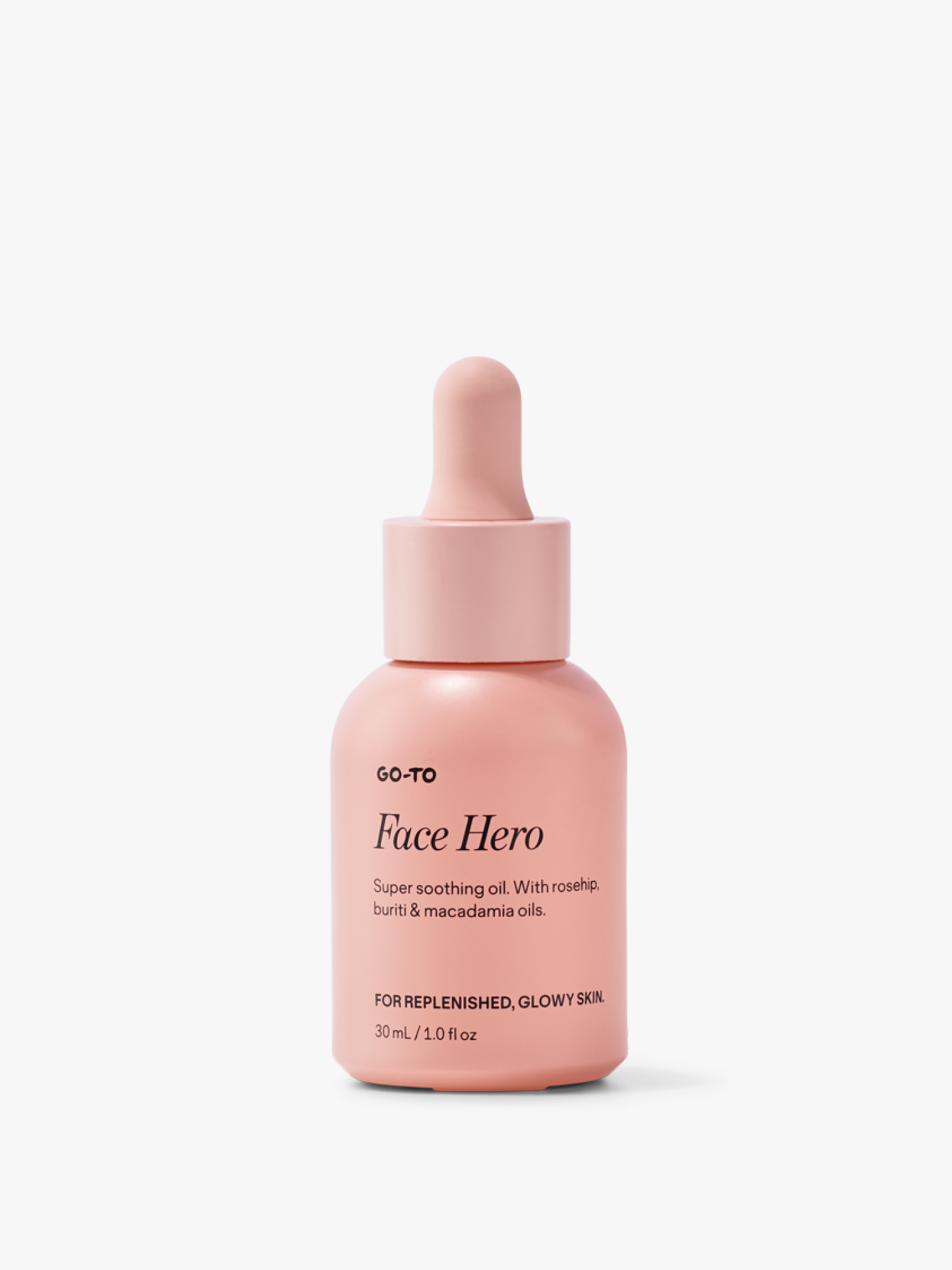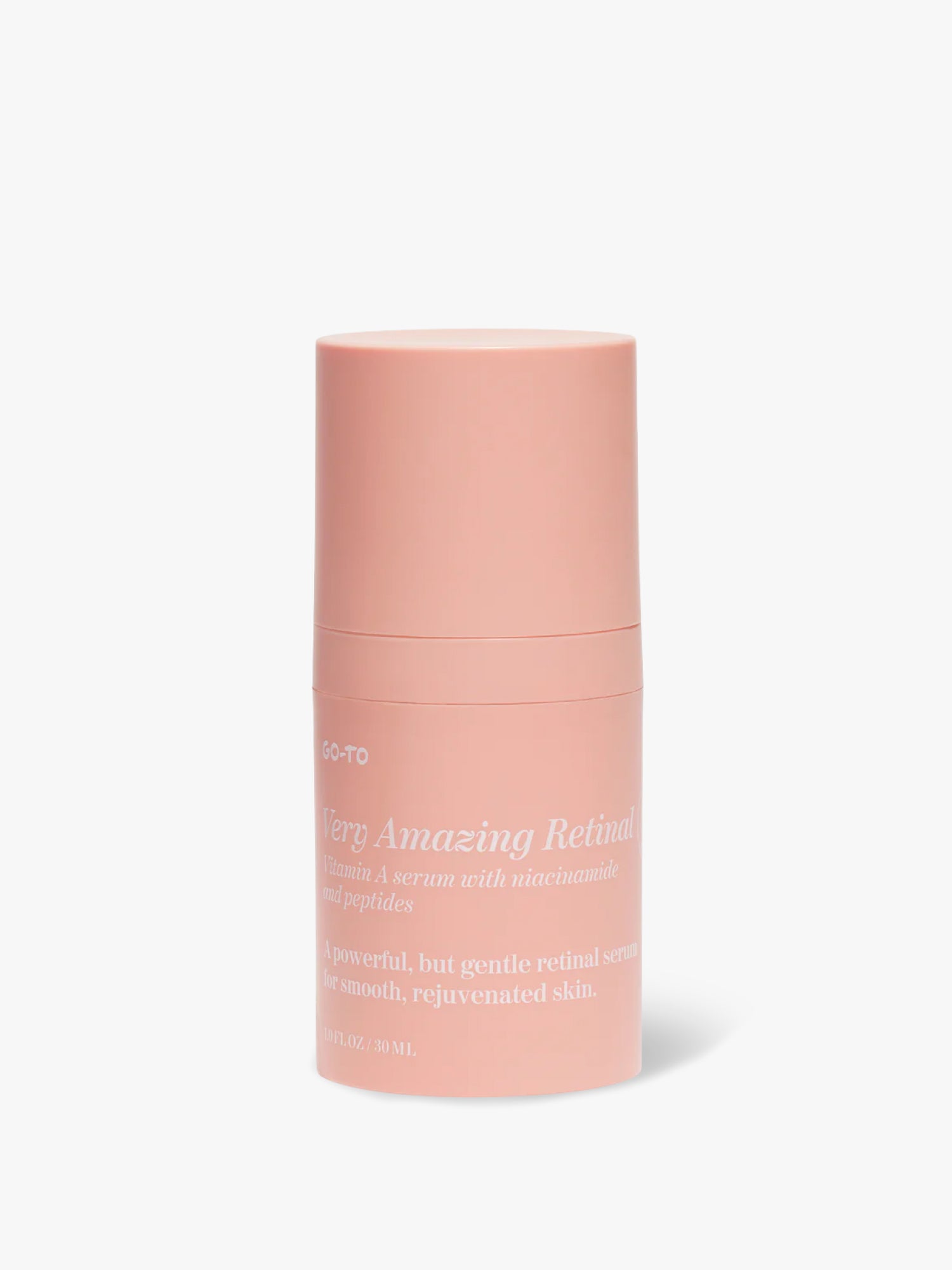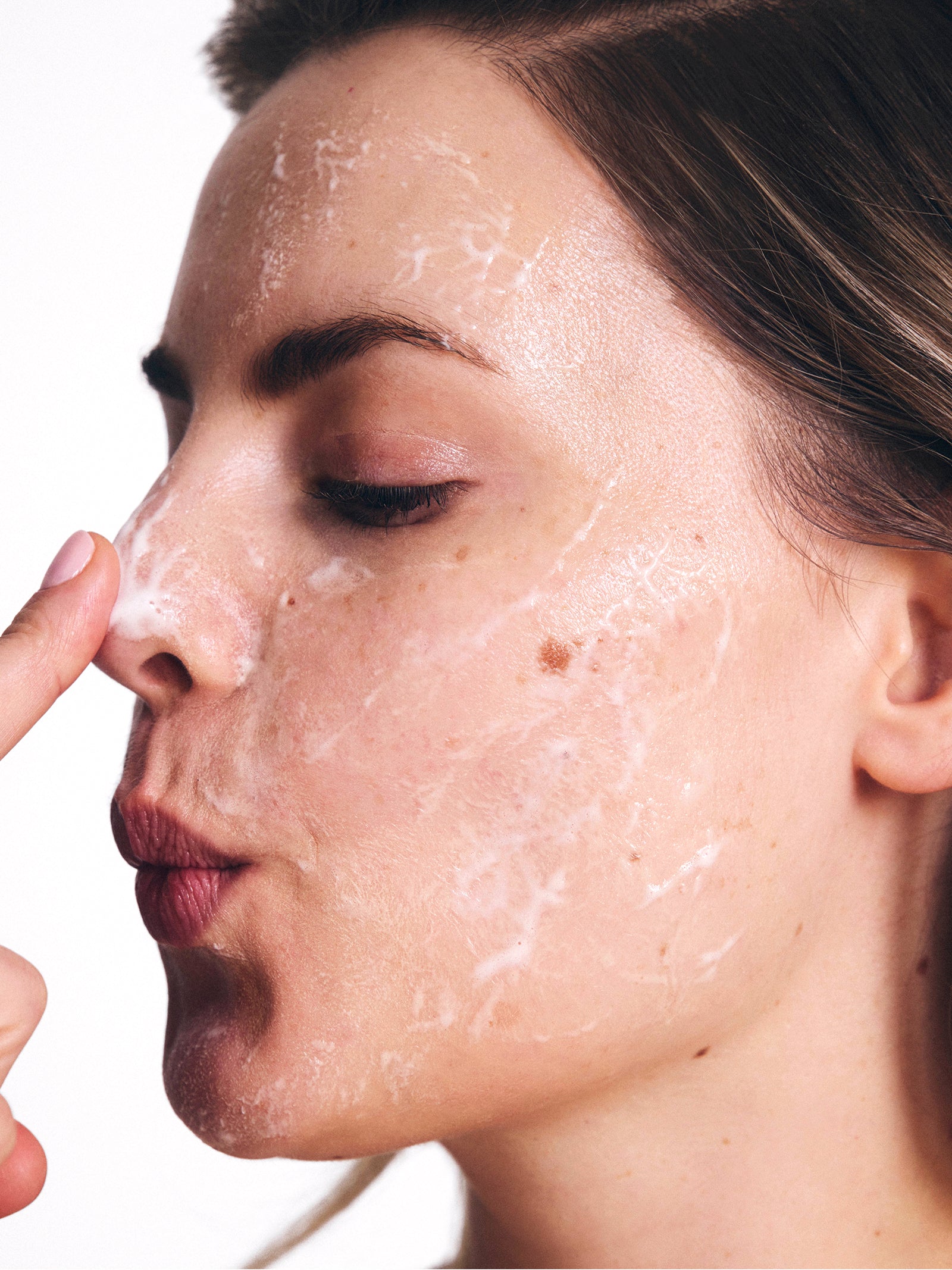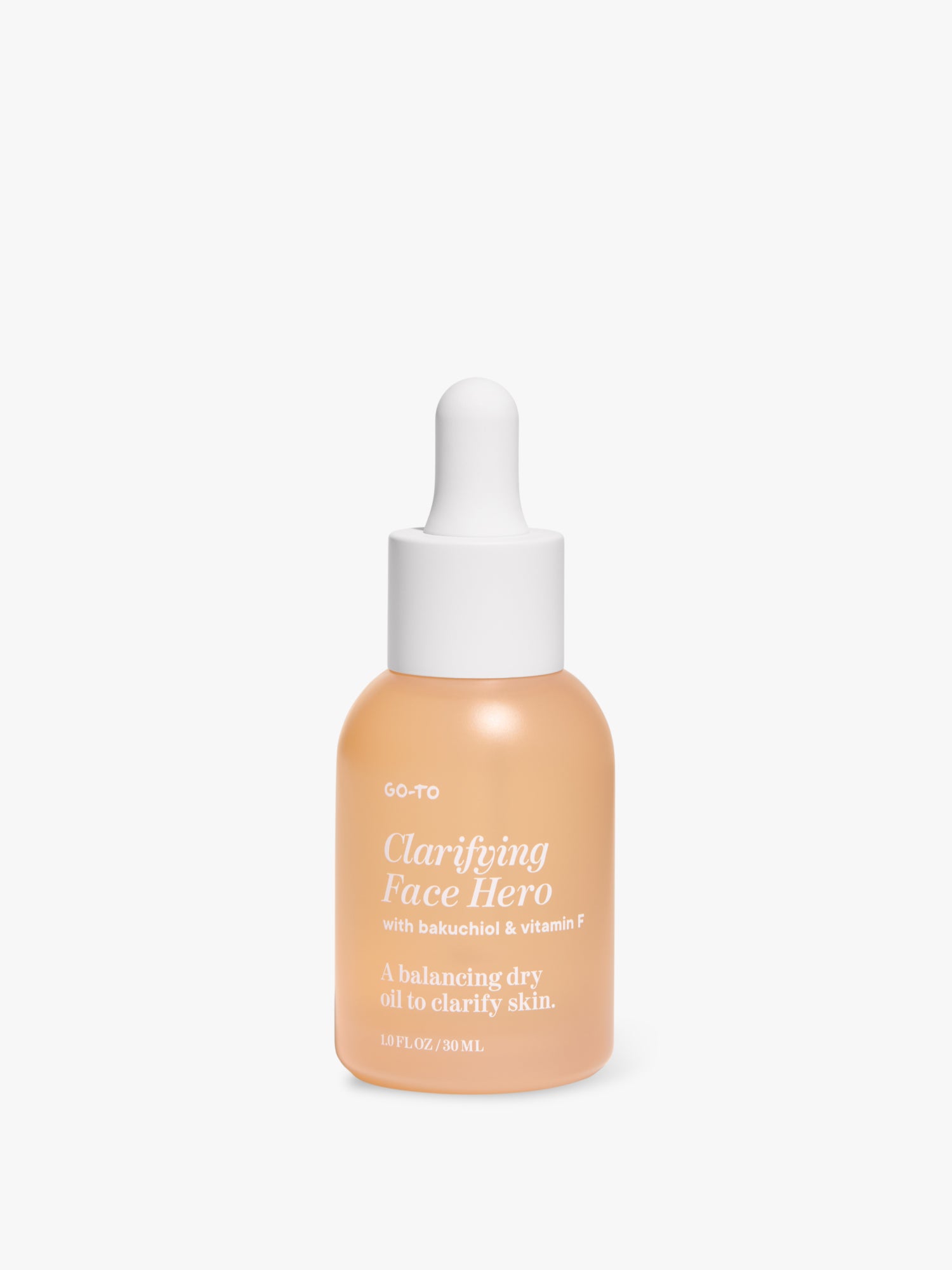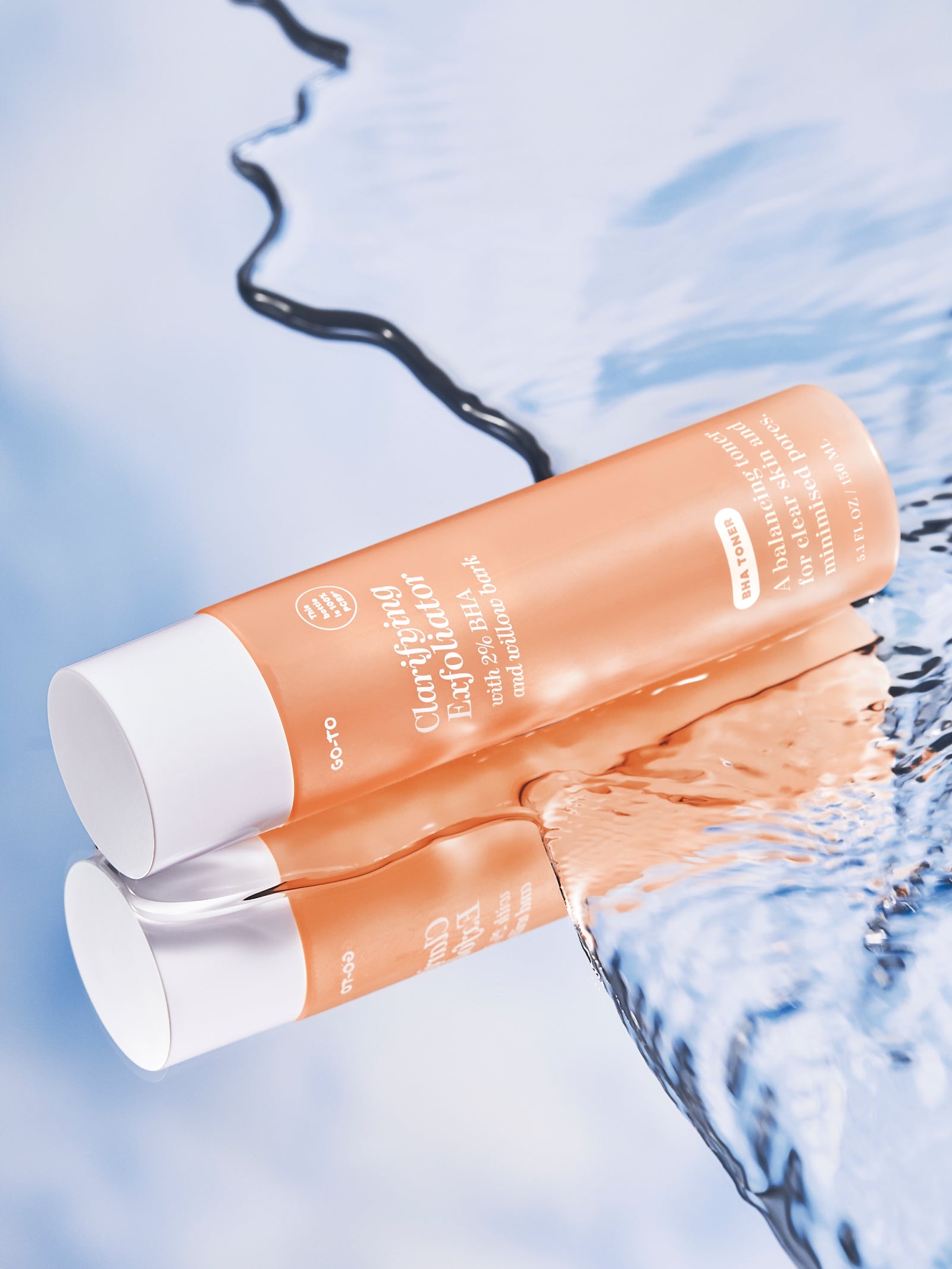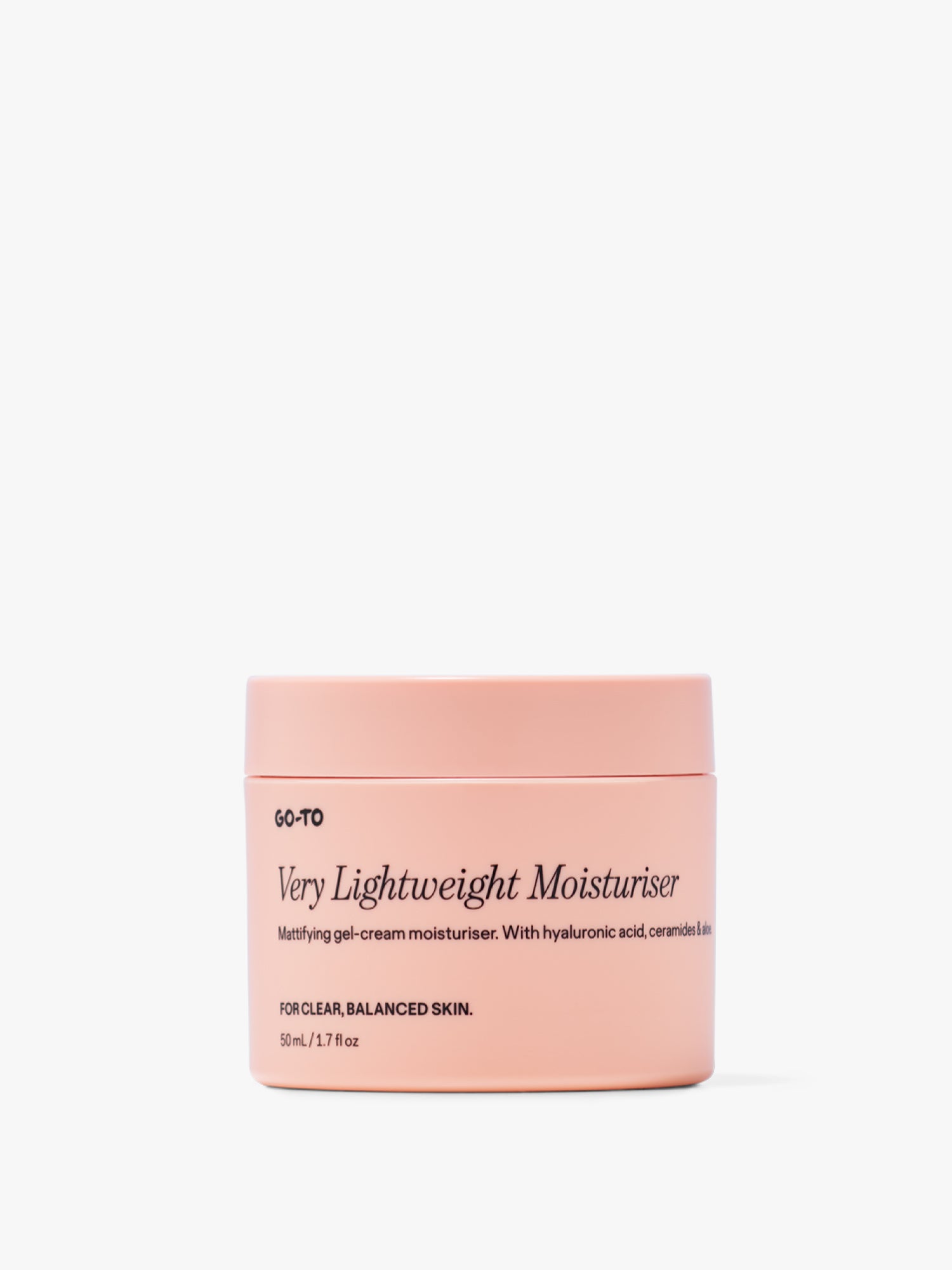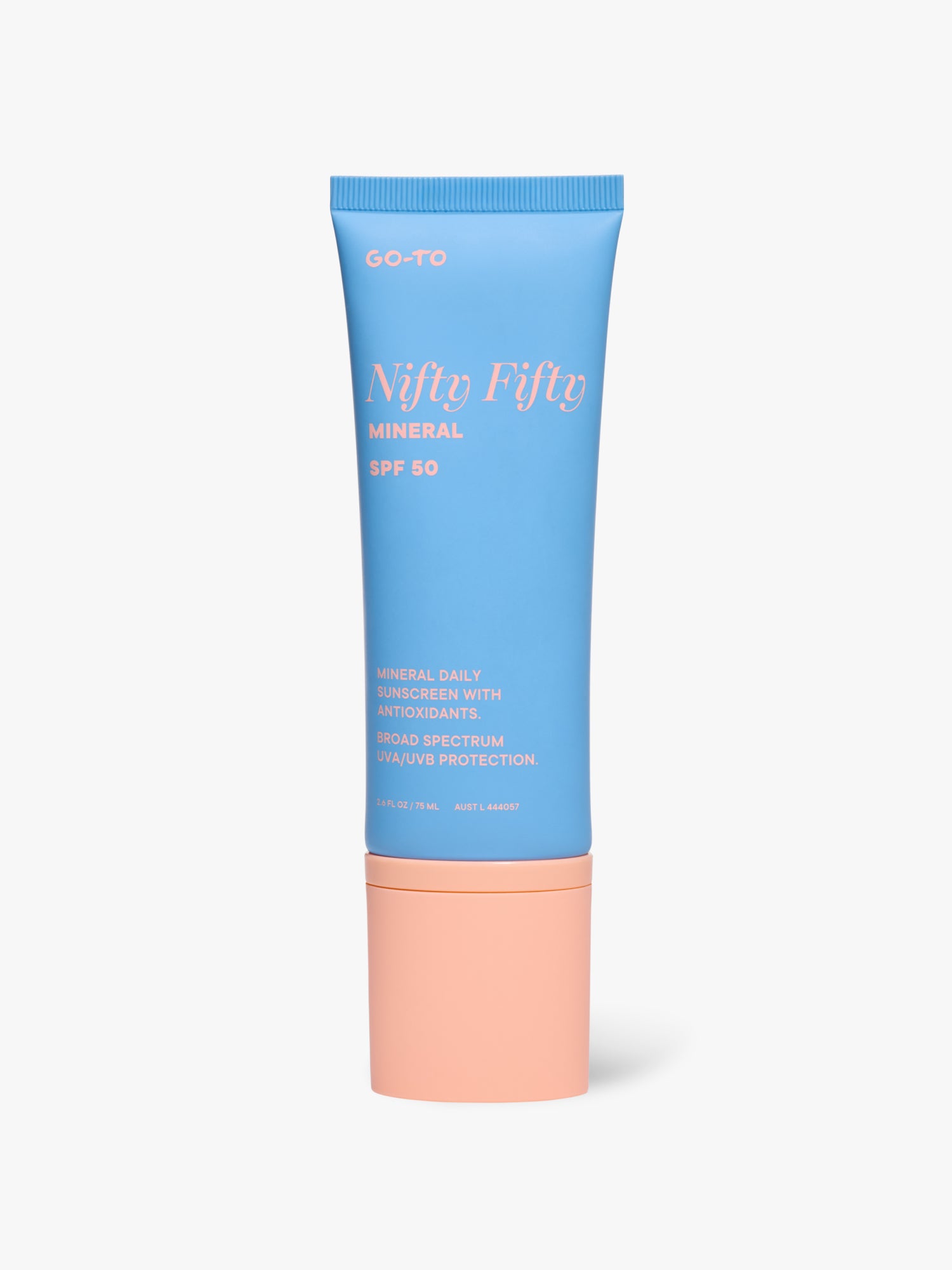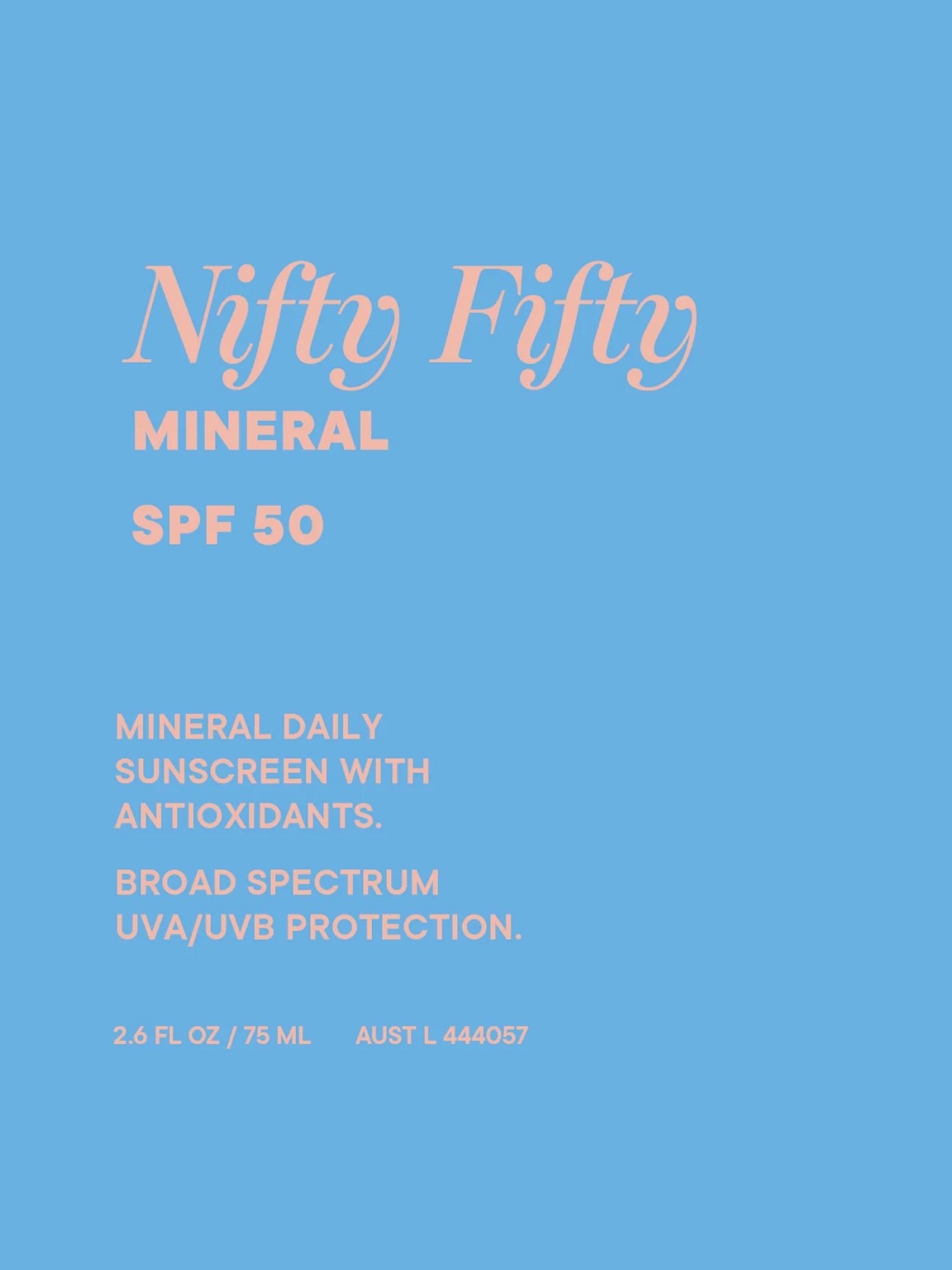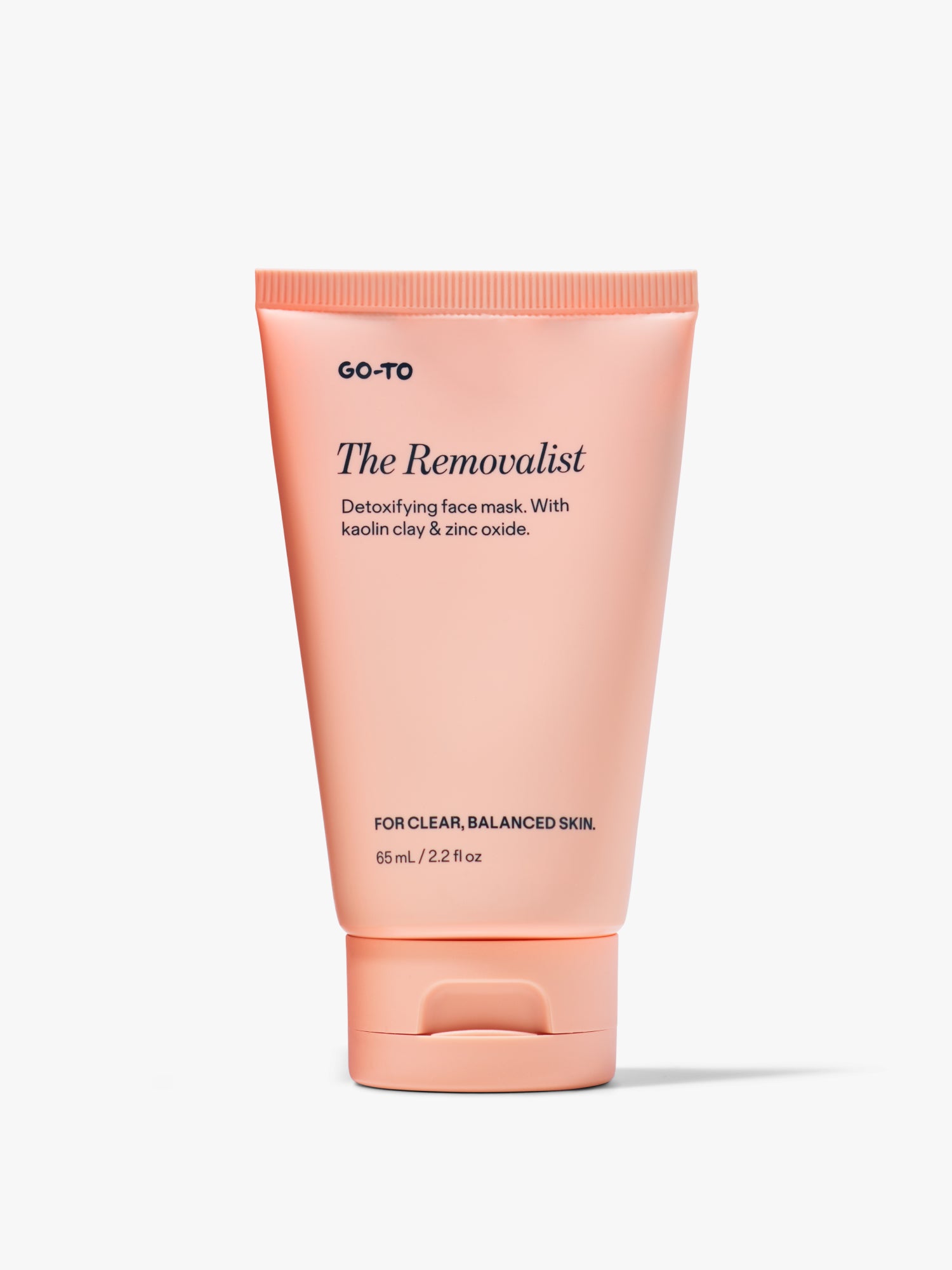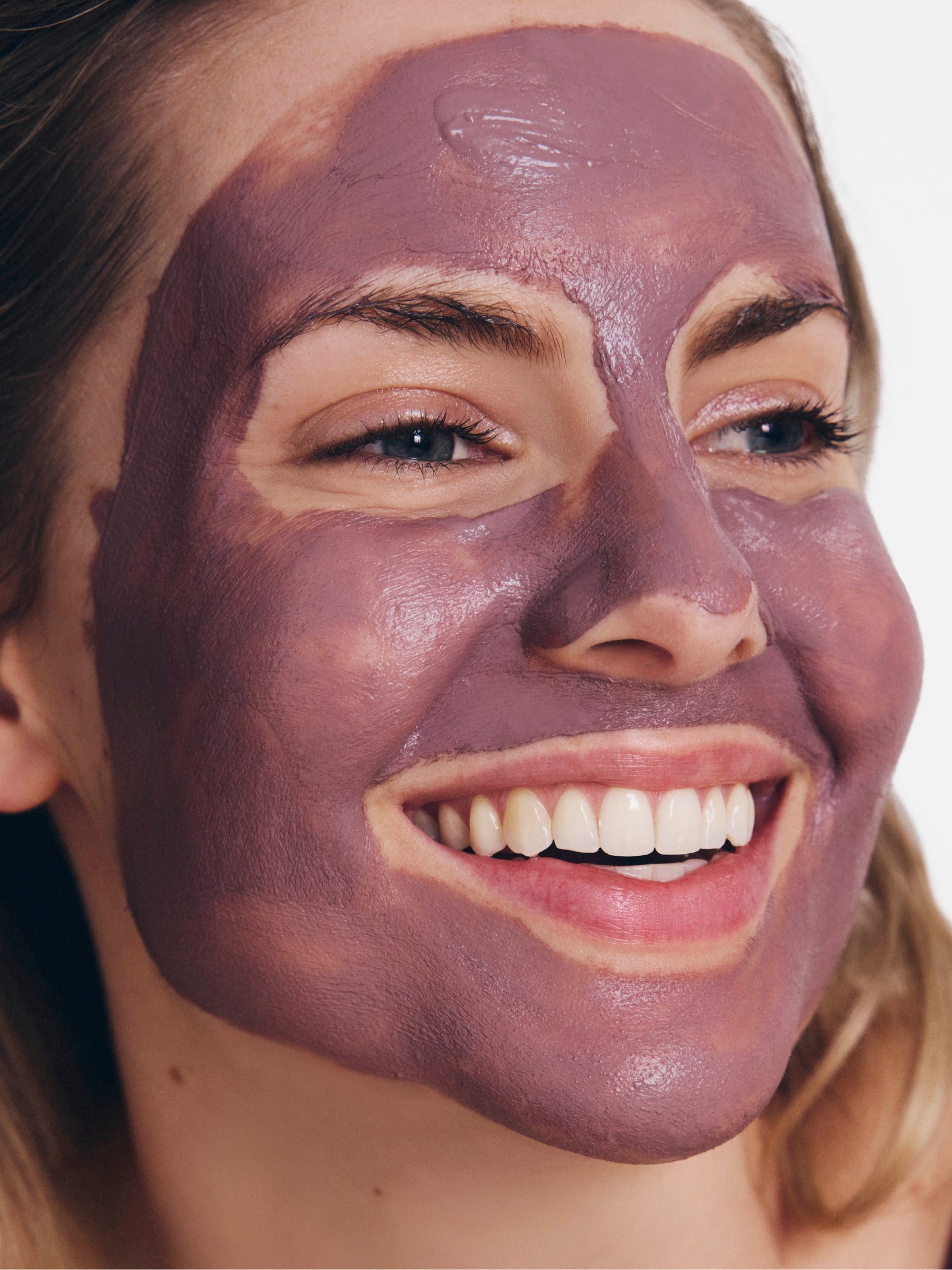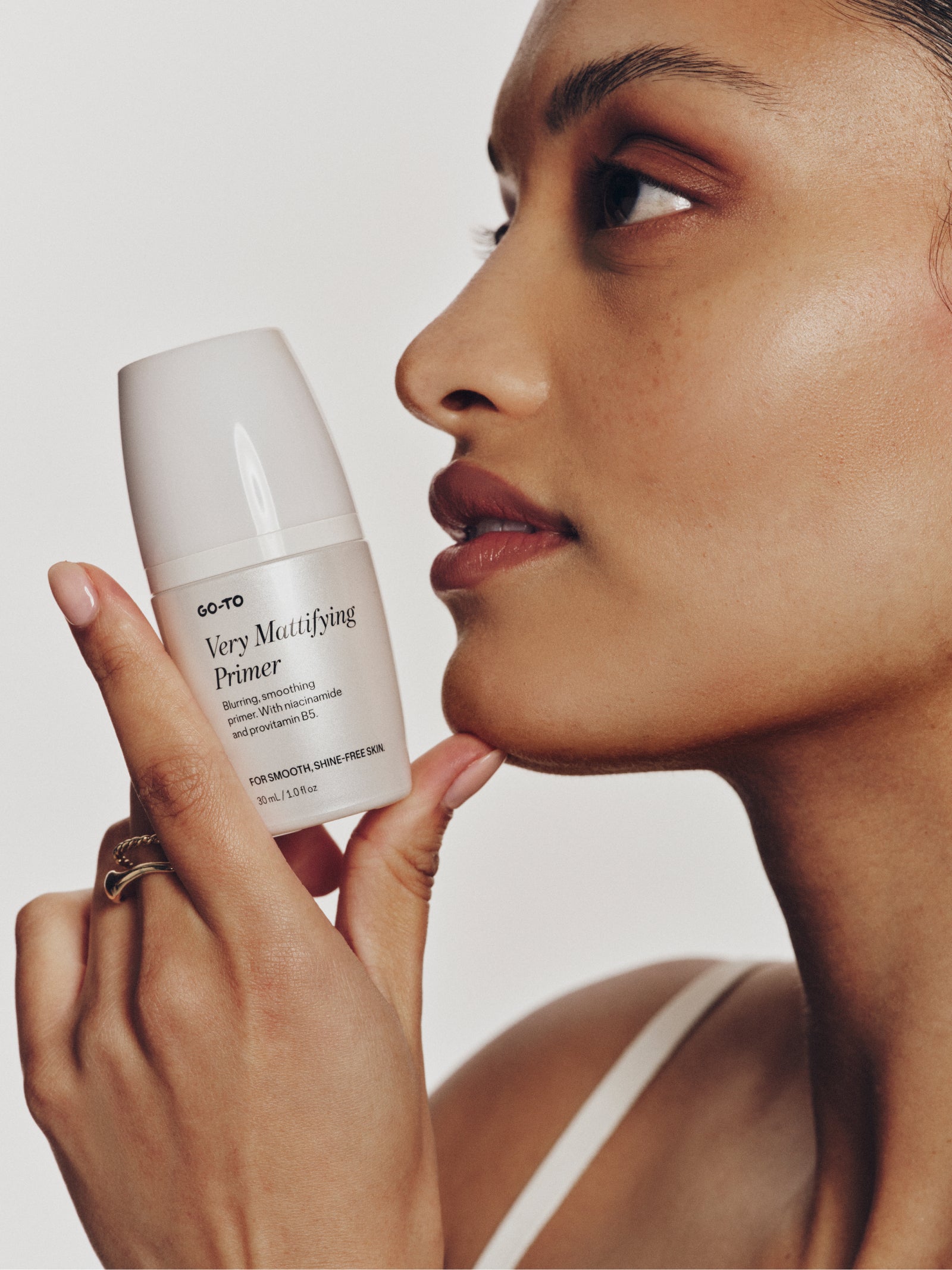Tips for managing oily skin
Be diligent and consistent with your routine. Once you’ve nailed the four core steps (cleanse, treat, nourish, protect) you can start to weave in some ‘extras’ that will help to maintain a healthy, glowing complexion.
Niacinamide is a great ingredient for balancing oil production and improving the overall appearance of your skin. Kaolin clay is another must-have for absorbing excess oil and detoxifying the skin. Then there’s the powerhouse: Retinal. One to invest in for increased skin cell turnover, preventing clogged pores, and minimising breakouts. Alternatively, bakuchiol is known to have antioxidant properties that help to maintain the integrity of the skin’s natural lipids/oils and helps to relieve the signs of inflammation—in other words, it’s an ingredient acne-prone or breakout-y skin will love.
Oh! And stay hydrated. And stop touching your face.
What causes oily skin?
Oily skin is caused by an overproduction of sebum within the sebaceous gland. This happens for many reasons, the main being hormones (in particular, testosterone) (which explains potential changes to your skin type during puberty, pregnancy, menopause) and genetics; if one parent has oily skin or is acne-prone, you may inherit this skin type.
There are also some external influences at play here. Like climate - where you live may contribute to the increased oiliness of your complexion. Hot, humid, tropical climates are known culprits.
Then there are the lifestyle factors we can’t ignore, either. Diet and stress can influence oil production.
Or perhaps you went too hard with skincare products that strip and dry the skin. In which case, your body produces more oil to counteract this feeling. Smart, huh.
How often should I cleanse my oily skin?
Twice daily. Once in the morning, and again before bed. And preferably that PM routine features a double cleanse - an oil-based cleanser followed by a water-based cleanser. This is going to ensure you properly remove any product residue, excess oil, grime, impurities that have accumulated on the skin throughout the day.
For oily skin types a gentle, foaming cleanser is going to be your best mate. Bonus points if that product incorporates non-irritating levels of salicylic acid to give your pores a really good clean.
Can oily skin benefit from moisturiser?
Yes! Absolutely! All skin types need moisture.
A lightweight face cream is going to play a very important role in your skincare routine. It will: look after your moisture barrier and keep it strong, regulate oil production, soften and smooth the skin, and (depending on the ingredients in the product you choose) it can target specific concerns to reduce shine, plump fine lines, and anything in between!
Your skin type shouldn’t determine whether or not you moisturise, but rather, what type of moisturiser you use. A matte moisturiser that is going to sink into the skin without a whiff of residue is perfect for oily faces.
How often should I moisturise if I have oily skin?
You can moisturise morning and night, depending on what your skin needs. You can also skip moisturiser in the AM and apply SPF if you’re using a sunscreen with hydrating ingredients, and you prefer to keep your skincare layers light on.
Are there any ingredients I should avoid for oily skin?
There are a select few ingredients you’d be wise to avoid, to prevent exacerbating oiliness in your skin.
Heavy butters and oils (coconut, shea) can clog pores and lead to breakouts. Linoleic acid, jojoba, and vitamin E are excellent alternatives for nourishing the skin.
Otherwise, just be careful with harsh exfoliants. If you irritate the skin this might trigger oil production. So stick to very gentle AHAs and BHAs to help clear away dead or dull skin cells.





